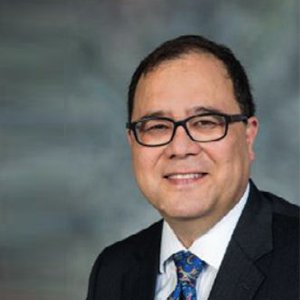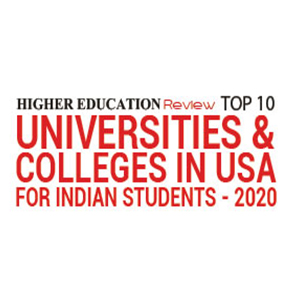
Rice University: Nurturing The Next Generation Of Innovators And Change Bringers
By Seiichi Matsuda, Interim Provost, Dean of Graduate and Postdoctoral Studies
The US educational institutions have created many exemplary individuals who have had a massive impact on the world. Founded in 1912, Rice University has been a favorite study destination for international students even before international higher education became a mainstream trend, thanks to their care of and dedication to their students. The institute's namesake, William Marsh Rice founded a world-class higher education institute and was a true visionary, committed to providing the best possible education to those with limited means. The University started as The Rice Institute and it quickly established its reputation through excellence in academics and research. Rice aspires to offer path-breaking research, unsurpassed teaching, and contribution to the betterment of the world. By operating to find unconventional ways to solve big problems faced by the world, to leave no stone unturned, to reinvent traditional thinking and ignite new ideas, engineer new courses of action and pioneer new solutions, Rice University has set itself apart from other institutions.
In 2012, Rice celebrated its centennial, and to mark the occasion, the university formulated the goals that they want to achieve in the next 100 years. "Rice is a uniquely remarkable institution in an equally impressive and innovative city that is Houston. Houston is also known as the energy capital of the world due to the number of oil and gas companies located here, and many of our labs on campus are involved with energy research of all kinds. Rice is renowned by the Wall Street Journal as the fifth-best university in the US in terms of our student resources. Owing to our small size, students at our institute have easy access to faculty and other students, aiding interdisciplinary learning. As a result, we have an overwhelming number of research projects that involve faculty across disciplines and departments working together," speaks Jennifer Hunter, Admissions and Visibility Strategy Manager in the Office of Graduate and Postdoctoral Studies at Rice University.
"Rice University takes a different approach to teaching than many in the US higher education sector, providing a more personalized education that is no longer the norm and sets students up for success in and out of the lab or classroom"
Rice University takes a different approach to teaching than many in the US higher education sector, providing a more personalized education that is no longer the norm and sets students up for success in and out of the lab or classroom. "We are committed to the principle that the success of our students defines the stature of the university. We deliberately choose to admit small cohorts of students and maintain a small student-to-faculty ratio to ensure that our students publish at levels far above the norm," states Seiichi Matsuda, Dean of Graduate and Postdoctoral Studies at Rice University.
Rice University currently has over 50 different graduate degree programs in architecture, business, engineering, humanities, music, natural sciences and social sciences. "We are particularly strong in engineering and sciences and have introduced new university-wide initiatives in engineering and medicine, molecular nanotechnology and materials, energy and the environment, neuro-engineering, synthetic biology, physical biology, and data science. Our Center for Teaching Excellence on campus actively instructs faculty and graduate students on the most current and inclusive instructional methods. They host regular talks, reading groups, symposia and panels to highlight different topics of interest. Our programs support internships and help facilitate students' job searches before they graduate, and many faculty use their networks to connect doctoral students to their next opportunity. Our administration and faculty support a diverse variety of careers for Ph.D. students, and mentor students to placements they will be successful in," adds Jennifer Hunter.
Today, Rice University is a leader in the flipped classroom movement with students and faculty actively engaging in the materials during the class hours while class prep-work for these exercises takes place prior to the class hour through online lectures and course readings. The university offers many experiential learning and leadership opportunities beyond the classroom, including internship and travel programs as well as leadership training organized by the institutes' endowed Doerr Institute for New Leaders. For students who are thinking about the financial aspect of moving to the US for education, all Ph.D. programs offered by Rice are fully-funded. Rice waives tuition fees for these programs and provides a generous stipend to support the cost of living in Houston, a very affordable place to live in compared to places on the east or west coasts of the US.
Seiichi Matsuda has a B.A in Chemistry from Bethel College and a Ph.D. in Chemistry from Harvard. He has been a Rice faculty since 1995 and he became the Dean of Graduate and Postdoctoral Studies in 2014. Matsuda is also a former recipient of the prestigious George R. Brown Award for Superior Teaching.
Jennifer Hunter monitors the metrics and trends to formulate innovative communication strategies for Rice. Hunter has been working in the higher education realm since 2005 and has got valuable experience at various positions in reputed institutions.
Inspired by their Experiences
In 2012, Rice celebrated its centennial, and to mark the occasion, the university formulated the goals that they want to achieve in the next 100 years. "Rice is a uniquely remarkable institution in an equally impressive and innovative city that is Houston. Houston is also known as the energy capital of the world due to the number of oil and gas companies located here, and many of our labs on campus are involved with energy research of all kinds. Rice is renowned by the Wall Street Journal as the fifth-best university in the US in terms of our student resources. Owing to our small size, students at our institute have easy access to faculty and other students, aiding interdisciplinary learning. As a result, we have an overwhelming number of research projects that involve faculty across disciplines and departments working together," speaks Jennifer Hunter, Admissions and Visibility Strategy Manager in the Office of Graduate and Postdoctoral Studies at Rice University.
"Rice University takes a different approach to teaching than many in the US higher education sector, providing a more personalized education that is no longer the norm and sets students up for success in and out of the lab or classroom"
Rice University takes a different approach to teaching than many in the US higher education sector, providing a more personalized education that is no longer the norm and sets students up for success in and out of the lab or classroom. "We are committed to the principle that the success of our students defines the stature of the university. We deliberately choose to admit small cohorts of students and maintain a small student-to-faculty ratio to ensure that our students publish at levels far above the norm," states Seiichi Matsuda, Dean of Graduate and Postdoctoral Studies at Rice University.
Thriving with Custom-Designed Educational Programs
Rice University currently has over 50 different graduate degree programs in architecture, business, engineering, humanities, music, natural sciences and social sciences. "We are particularly strong in engineering and sciences and have introduced new university-wide initiatives in engineering and medicine, molecular nanotechnology and materials, energy and the environment, neuro-engineering, synthetic biology, physical biology, and data science. Our Center for Teaching Excellence on campus actively instructs faculty and graduate students on the most current and inclusive instructional methods. They host regular talks, reading groups, symposia and panels to highlight different topics of interest. Our programs support internships and help facilitate students' job searches before they graduate, and many faculty use their networks to connect doctoral students to their next opportunity. Our administration and faculty support a diverse variety of careers for Ph.D. students, and mentor students to placements they will be successful in," adds Jennifer Hunter.
Today, Rice University is a leader in the flipped classroom movement with students and faculty actively engaging in the materials during the class hours while class prep-work for these exercises takes place prior to the class hour through online lectures and course readings. The university offers many experiential learning and leadership opportunities beyond the classroom, including internship and travel programs as well as leadership training organized by the institutes' endowed Doerr Institute for New Leaders. For students who are thinking about the financial aspect of moving to the US for education, all Ph.D. programs offered by Rice are fully-funded. Rice waives tuition fees for these programs and provides a generous stipend to support the cost of living in Houston, a very affordable place to live in compared to places on the east or west coasts of the US.
Seiichi Matsuda, Interim Provost, Dean of Graduate and Postdoctoral Studies
Seiichi Matsuda has a B.A in Chemistry from Bethel College and a Ph.D. in Chemistry from Harvard. He has been a Rice faculty since 1995 and he became the Dean of Graduate and Postdoctoral Studies in 2014. Matsuda is also a former recipient of the prestigious George R. Brown Award for Superior Teaching.
Jennifer Hunter, Admissions and Visibility Strategy Manager
Jennifer Hunter monitors the metrics and trends to formulate innovative communication strategies for Rice. Hunter has been working in the higher education realm since 2005 and has got valuable experience at various positions in reputed institutions.

